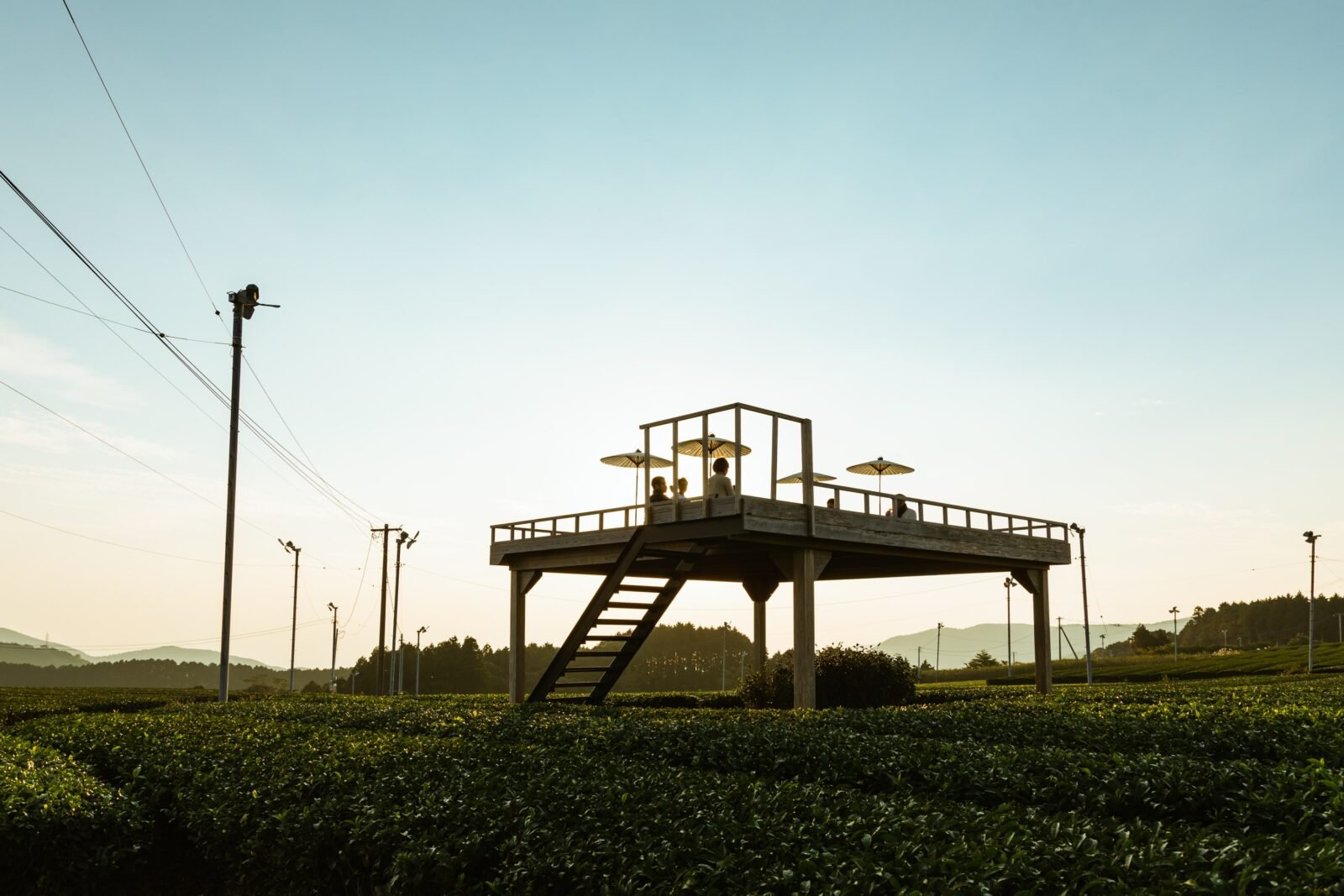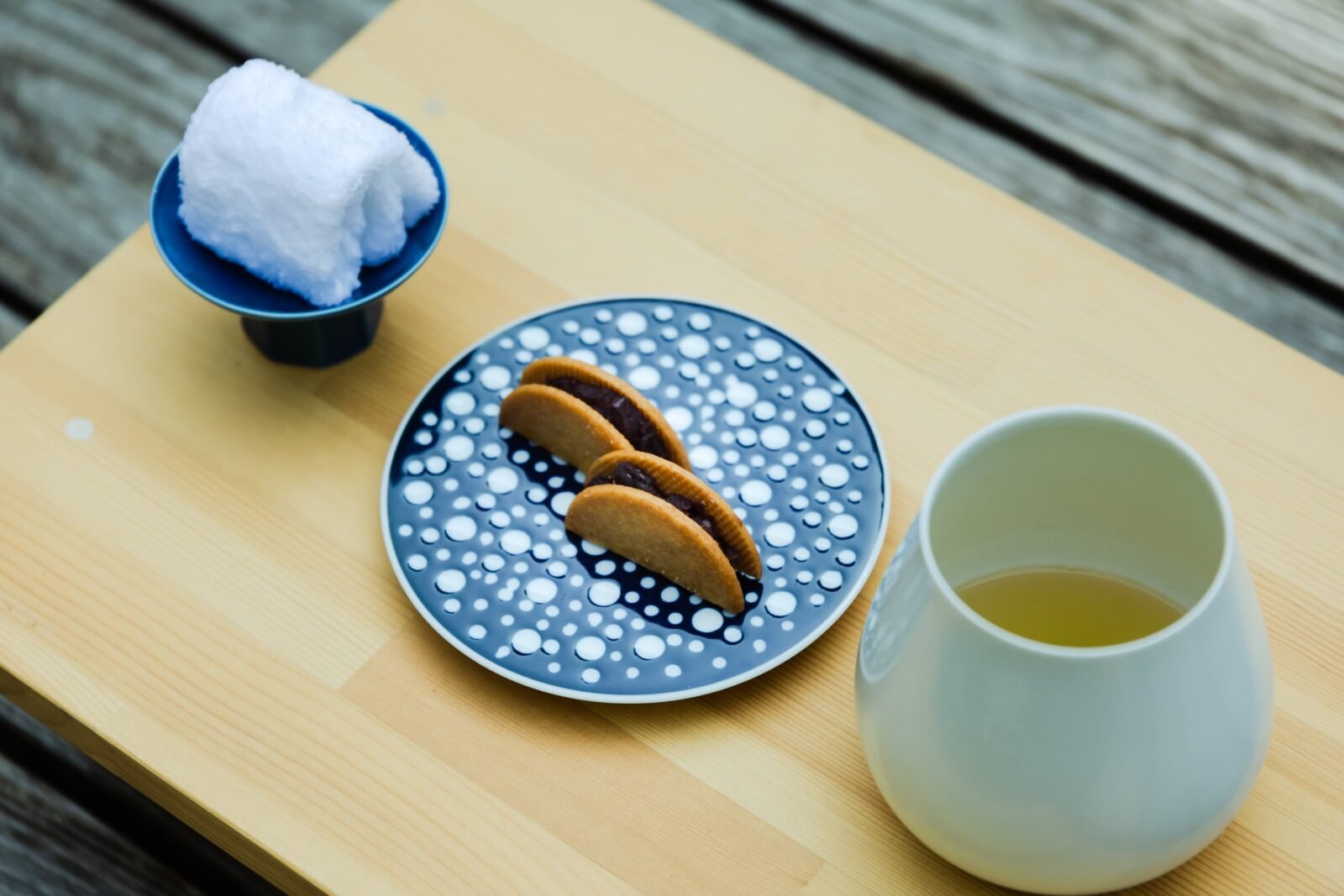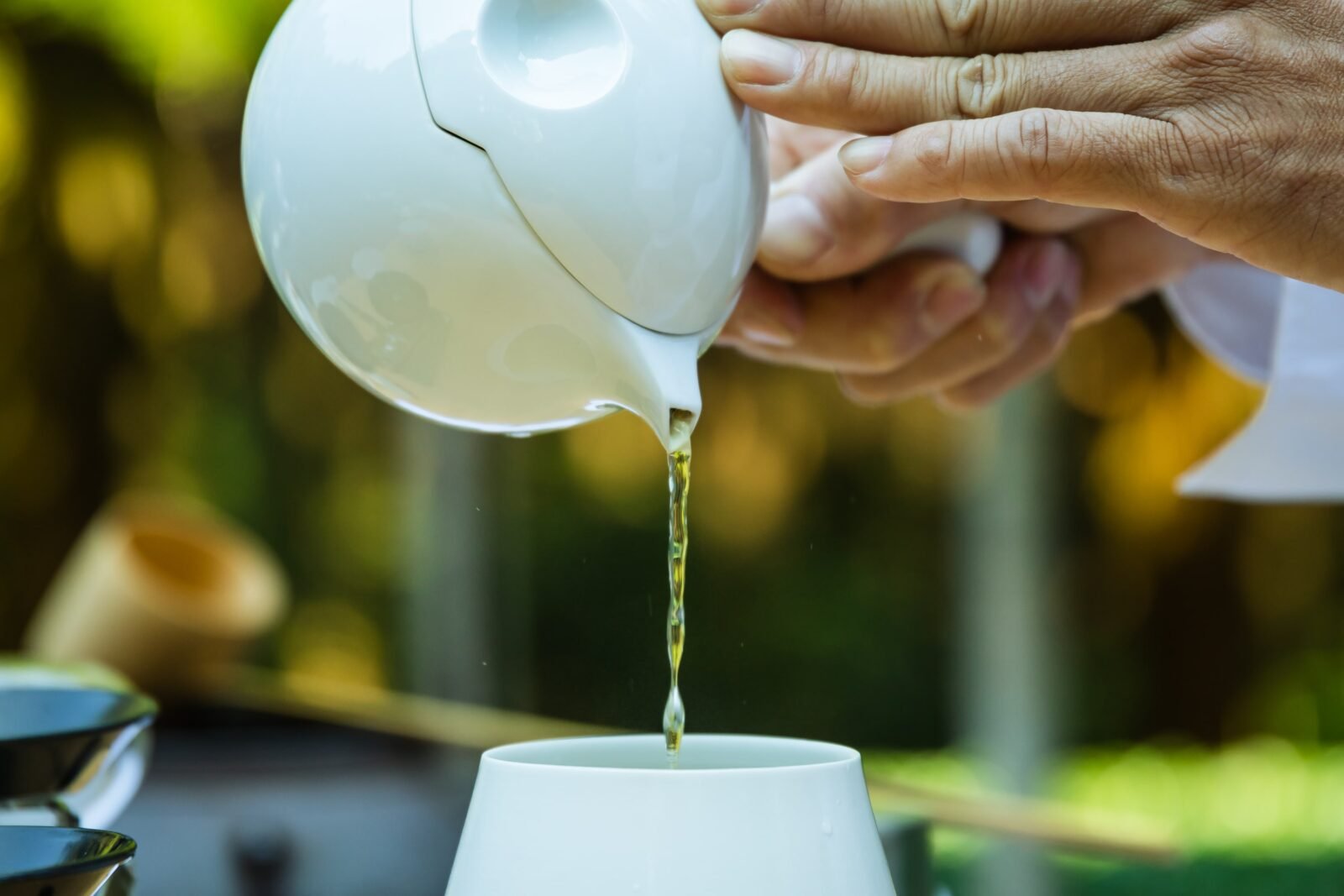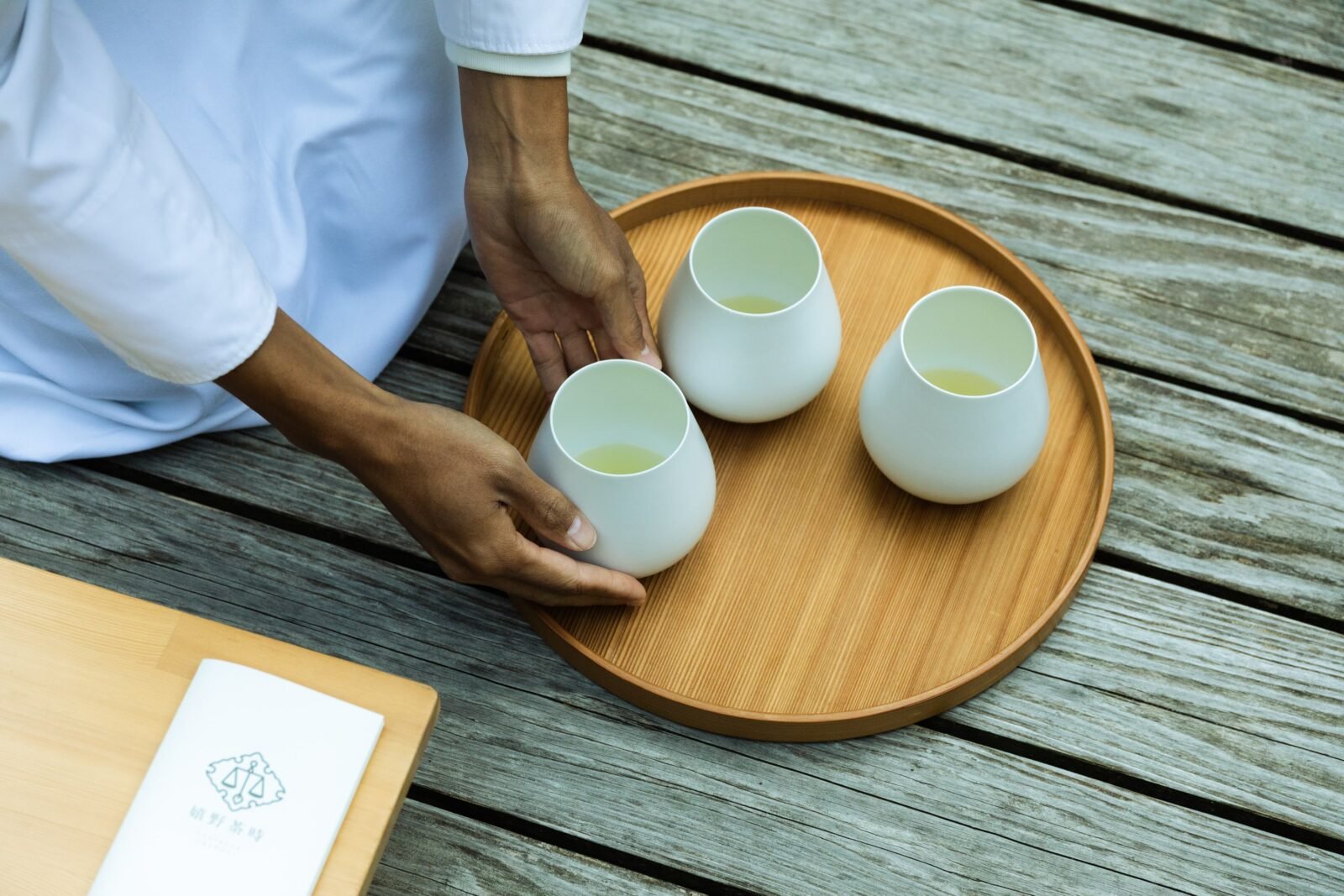How the Japanese Tea Ceremony Becomes a Landscape Experience

Tea ceremonies are inextricably linked to Japanese culture. On the island of Kyushu, a tea plantation turns the tea ceremony into an immersive landscape experience, allowing visitors to consume the tea where it's grown.
The Japanese island of Kyushu is famous for its traditional crafts: textile, ceramics, paper, tea, and so on. In recent years, this historically-rooted identity has come under increasing pressure due to globalisation, automation and population decline. But there’s a new generation of innovative makers in Kyushu, and they’re not afraid to push boundaries and bring these traditional crafts into the 21st century. Ureshino Chadoki is one of them.

Enveloped by misty mountains, rich in clear air and water, the area of Ureshino, in the Saga Prefecture, is perfect for tea cultivation. In the area filled with sloping tea fields, a network of local makers, blenders, hotels, spas and potteries has been founded. This unique collaboration links several crafts and makers in the region, together offering a Ureshino Chadoki tea experience. This combined project offers dinners and events, and even brings guests to intimate spaces on tea farms tucked away in the forest or overlooking the ocean.
Ureshino Chadoki serves a variety of different local teas. Enveloped in the natural atmosphere, guests are served a course of tea and sweets prepared by tea growers themselves. There’s also an option for a tea sommelier to organise a personalised tea experience for guests staying at a traditional Japanese inn (ryokan). It embraces the tradition of the tea ceremony which began in Japan in the 16th century. In Japan, tea is not just a drink but a tradition, ceremony, and meditative practice. Through the spatial experiences offered by Ureshino Chadoki, guests can take a quiet moment to enjoy the surroundings, their company and the pottery.

Over time, tea has become a mass-produced commodity, sidelining its traditions and unique tastes. Ureshino Chadoki addresses this neglect to reconnect with the local traditions and tastes of tea grown locally in Ureshino. Through this project tea farmers, potters, and hot spring inns all collaborate to express these traditional cultures in new ways, culminating in an all-encompassing experience for visitors.










